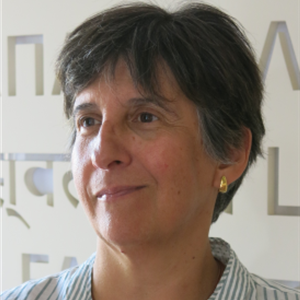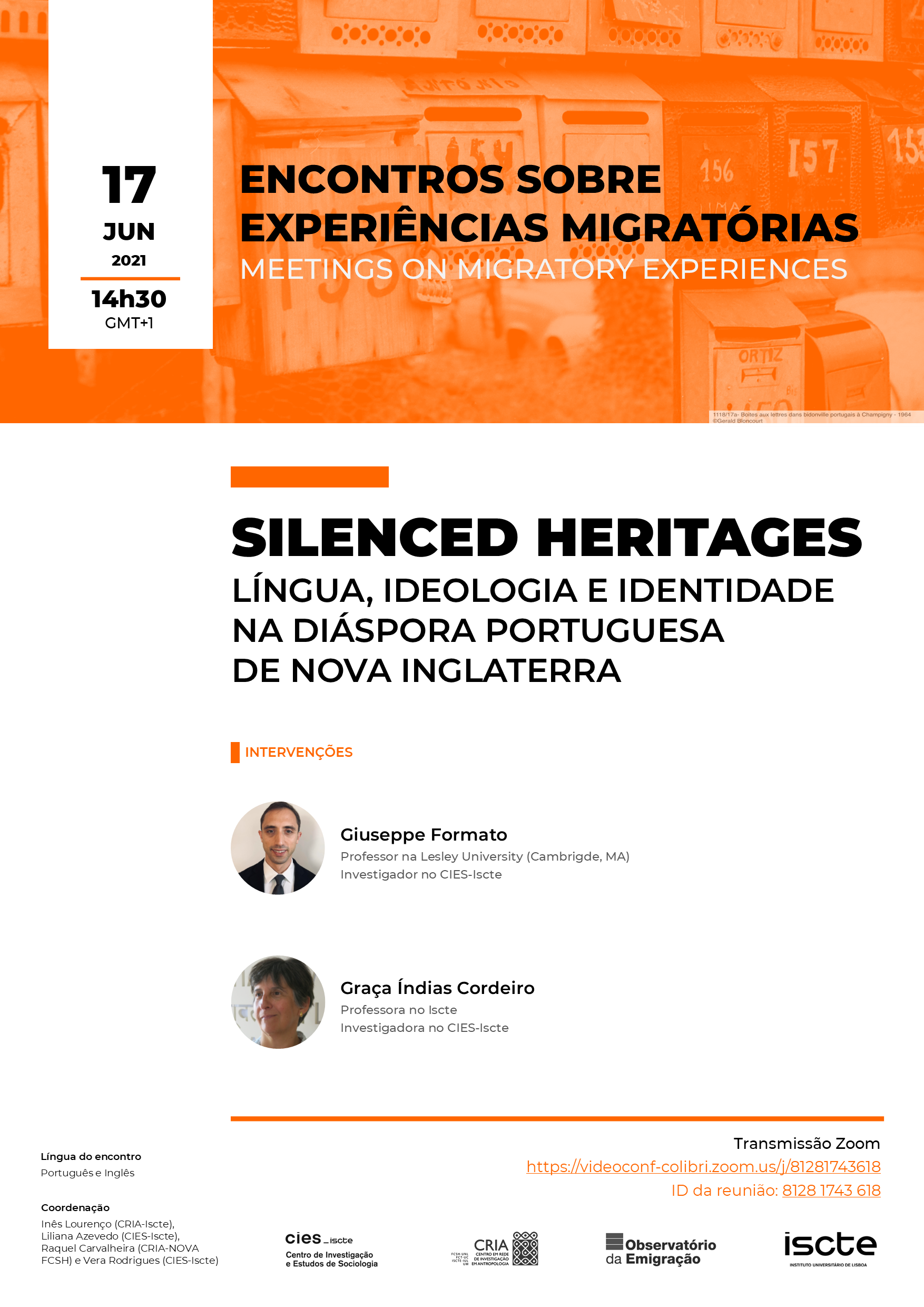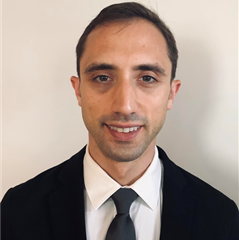- News
- Events
- Recurring Events
- Biographies and Trajectories
- Cidades & Impérios: dinâmicas locais, fluxos globais
- Cultural Diversity in Contemporary Families
- Meetings on China Studies
- Meetings Migration Experiences
- Social studies on science and the circulation of knowledge
- Public Policy Forum
- Research Forum CIES
- Gender, Sexuality and other social markers of difference
- ETNO.URB Readings
- Social Movements and Political Action
- New Perspectives on Modern History
- Revisiting the 19th Century
- Research Workshops
- Methodological Innovation Workshops
- Calls
→ Link Zoom https://videoconf-colibri.zoom.us/j/81281743618
Meeting ID: 8128 1743 618
Abstract
New England has been one of the major migratory destinations for the Portuguese, predominanetly from the Azores, who first began arriving over 150 years ago. Their destitations included multicultural and multilingual metropolitan areas, such as the Boston area. It is therefor not surprising, that a linguistic contact variant, heavily influenced by the Portuguese spoken on the island of São Miguel has consolidated in this region, and is a product of multiple and quite complex generational, local and transnational interactions. Many descendants of these Portuguese, existing in these Portuguese-speaking communities, enroll in Portuguese language courses, as a way of developing their bi or plurilingual sociolinguistic identity. They are however faced with a teaching model of 'Portuguese as a foreign language' void of connection with to its local realities, and worse, with are presented with an attitude of stigmatizing devaluation of the variant that is familiar to them, resulting in many of these heritage learners to disengage from such courses. This is the starting point for a reflexive analysis of the sociolinguistic tensions that permeate the teaching of European Portuguese in diasporic contexts, tied to a strong ideology of a single, standard language - monocultural, monolingual, classist, nationalist and even neo-colonial - which does not recognize the local variants as legitimate, and thereby rejecting the internal diversity of Portuguese as a constituent of the sociolinguistic heritage of 'emigrant' communities.
|
|
Giuseppe Formato Lesley University (Cambrigde, MA) e CIES-Iscte
Associated researcher at CIES-Iscte, where he is currently conducting his postdoctoral research. He is also a senior lecturer at Lesley University. He previously served as fellow at the Camões Institute in Boston through its Fernão Mendes Pinto program. He has been an invited speaker to Emmanuel College, the Harvard Extension School, and the University of Massachusetts. He has published scholarly journals and presented at conferences in both Europe and North America. His areas of research interests include critical pedagogy, education, foreign language acquisition, and language ideologies. |
 |
Graça Índias Cordeiro Iscte e CIES-Iscte
|
Language of the Meeting:
Português e Inglês
Coordination:
Inês Lourenço (CRIA-Iscte)
Liliana Azevedo (CIES-Iscte)
Raquel Carvalheira (CRIA-NOVA FCSH)
Vera Rodrigues (CIES-Iscte)





